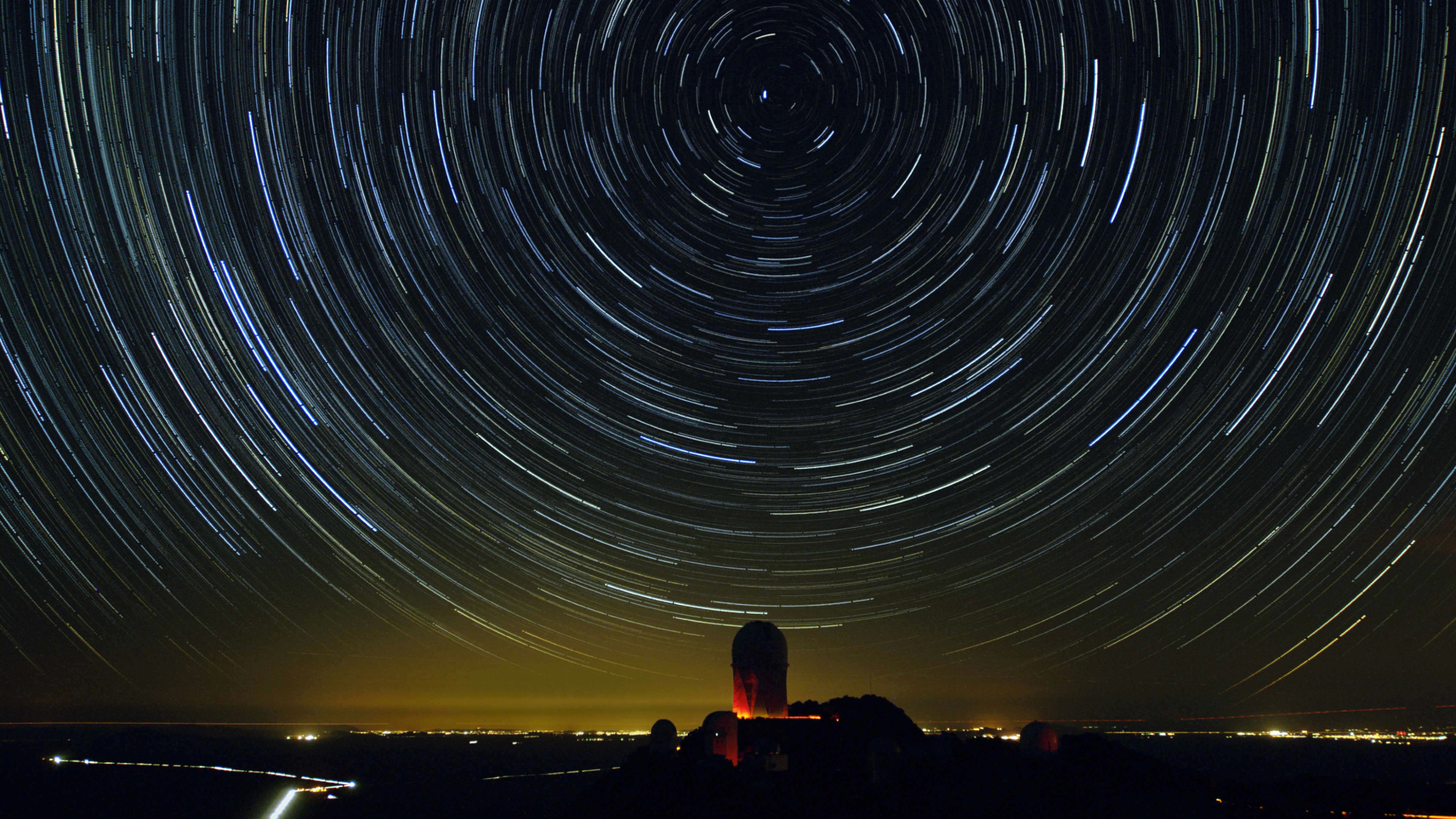Dark energy may not doom the universe, data suggests
The dark energy pushing the universe apart appears to be weakening


A free daily email with the biggest news stories of the day – and the best features from TheWeek.com
You are now subscribed
Your newsletter sign-up was successful
What happened
Scientists with the Dark Energy Spectroscopic Instrument (DESI), an international research collaboration, presented new evidence Wednesday that bolstered its recent finding that dark energy is not inexorably pushing the universe apart at a constant rate of acceleration but rather ebbs and flows and appears to be weakening. If borne out, that would upend the 27-year-old standard explanation of the mysterious force that appears to dominate the universe.
Who said what
Discovering the nature of dark energy may seem an academic exercise for cosmologists, but "nothing short of the fate of the universe hangs in the balance," The Associated Press said. If the standard model of constant acceleration is correct, the universe would eventually get "ripped apart across every scale, from galaxy clusters down to atomic nuclei," The New York Times said. But if DESI is right about dark energy evolving, the "expansion could wane, eventually leaving the universe stable," or the cosmos might "reverse course, eventually doomed to a collapse that astronomers refer to as the Big Crunch."
Is the "possibility that everything comes to an end" a "good or bad thing?" said DESI member Mustapha Ishak-Boushaki at the University of Texas at Dallas. "I don't know." The DESI observations "may be cosmically consequential," The Washington Post said, but for "planning purposes," the "timescale here is many billions or trillions of years."
The Week
Escape your echo chamber. Get the facts behind the news, plus analysis from multiple perspectives.

Sign up for The Week's Free Newsletters
From our morning news briefing to a weekly Good News Newsletter, get the best of The Week delivered directly to your inbox.
From our morning news briefing to a weekly Good News Newsletter, get the best of The Week delivered directly to your inbox.
What next?
DESI's original findings last year were based on mapping the movements of 6 million galaxies and quasars, and its new data ups that to nearly 15 million. The group "aims to map around 50 million galaxies and quasars by the end of its survey in 2026," the AP said, which could boost confidence in their results — or weaken it.
A free daily email with the biggest news stories of the day – and the best features from TheWeek.com
Peter has worked as a news and culture writer and editor at The Week since the site's launch in 2008. He covers politics, world affairs, religion and cultural currents. His journalism career began as a copy editor at a financial newswire and has included editorial positions at The New York Times Magazine, Facts on File, and Oregon State University.
-
 6 of the world’s most accessible destinations
6 of the world’s most accessible destinationsThe Week Recommends Experience all of Berlin, Singapore and Sydney
-
 How the FCC’s ‘equal time’ rule works
How the FCC’s ‘equal time’ rule worksIn the Spotlight The law is at the heart of the Colbert-CBS conflict
-
 What is the endgame in the DHS shutdown?
What is the endgame in the DHS shutdown?Today’s Big Question Democrats want to rein in ICE’s immigration crackdown
-
 How roadkill is a surprising boon to scientific research
How roadkill is a surprising boon to scientific researchUnder the radar We can learn from animals without trapping and capturing them
-
 NASA’s lunar rocket is surrounded by safety concerns
NASA’s lunar rocket is surrounded by safety concernsThe Explainer The agency hopes to launch a new mission to the moon in the coming months
-
 Nasa’s new dark matter map
Nasa’s new dark matter mapUnder the Radar High-resolution images may help scientists understand the ‘gravitational scaffolding into which everything else falls and is built into galaxies’
-
 The world’s oldest rock art paints a picture of human migration
The world’s oldest rock art paints a picture of human migrationUnder the Radar The art is believed to be over 67,000 years old
-
 Moon dust has earthly elements thanks to a magnetic bridge
Moon dust has earthly elements thanks to a magnetic bridgeUnder the radar The substances could help supply a lunar base
-
 The ocean is getting more acidic — and harming sharks’ teeth
The ocean is getting more acidic — and harming sharks’ teethUnder the Radar ‘There is a corrosion effect on sharks’ teeth,’ the study’s author said
-
 How Mars influences Earth’s climate
How Mars influences Earth’s climateThe explainer A pull in the right direction
-
 Cows can use tools, scientists report
Cows can use tools, scientists reportSpeed Read The discovery builds on Jane Goodall’s research from the 1960s
